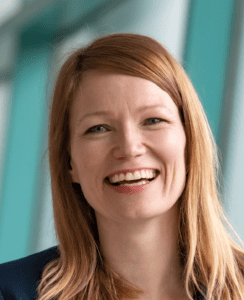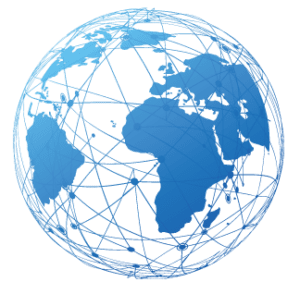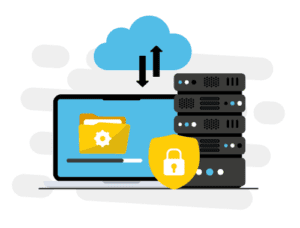
The ASHG membership team recently sat down with Minna Kaikkonen-Määttä, PhD, a Professor of Cardiovascular Genomics at the University of Eastern Finland and member of the Member Engagement Committee. As an international member of ASHG’s community, she has had the opportunity to collaborate across the world and expand her research. Dr. Kaikkonen-Määttä shared her lab’s work in technology development, advice for trainees and early career professionals, and her excitement about what is to come in CRISPR technologies and polygenic risk scores.
- Tell us a bit about your work with the Single Cell Genomics Core.My lab hosts a single cell genomics core which aims to provide access to the latest cutting-edge technologies in the field of single cell transcriptomics, epigenetics, and proteomics to local academic researchers and businesses. We provide experimental consultancy, library preparation and data analysis services. An important part of our mission is also technology development. It is particularly exciting how advances in single-cell sequencing technology are allowing researchers to better understand the genetic and molecular heterogeneity of cells and tissues, providing insights into disease mechanisms and potential therapies. Also, I believe the single cell based CRISPR screening technologies are going to revolutionize the functional characterization of genetic risk variants in the coming years.
- How does your ASHG membership help you navigate your professional life?For me, the most valuable aspect of my ASHG membership has been the platform it provides to connect with experts and leaders in the field of human genetics. This has allowed me to stay up-to-date with emerging trends and technologies, and enabled me to build relationships with great colleagues from around the world. I think ASHG membership also serves as a demonstration of commitment to the field, and has helped to build my professional reputation in the field.
-

Source: Artistdesign.13/Shutterstock.com Tell us about the importance of connecting international communities to and within the Society, perhaps using your work as an example?For my research, collaboration across the world and diversity has been particularly important for 3 reasons.
- Access to diverse and large data sets: Human genetics research often requires large and diverse data sets to draw meaningful conclusions. Collaborating with researchers from different regions and populations can provide access to data sets that are more representative of the global population, thereby increasing the accuracy and generalizability of research findings.
- Access to unique resources: Researchers in different parts of the world may have access to unique resources such as biobanks, animal models, and environmental exposures. Collaboration can provide access to these resources, which can facilitate research and lead to new discoveries.
- Shared expertise: Collaborating with researchers from around the world can bring together experts in different areas of human genetics research, leading to more comprehensive and multidisciplinary approaches to complex research questions.
For me, building these connections has been an incredibly rewarding experience. Not only have I been able to make great friends, but I’ve also had the opportunity to work with some of the brightest minds in the field and tackle research questions that I never thought would be possible.
-

Source: smx12/Shutterstock.com What is your advice to trainees and early career professionals?If you’re looking to build a career in the field of genetics, my advice would be to focus on developing skills that are in high demand such as cutting-edge laboratory technologies, data analysis, programming, and communication. Speaking from personal experience, the genomics techniques I learned during my postdoc at UCSD have proven to be invaluable in my professional life. In fact, they’ve helped me to set up my own lab in Finland and have given me the confidence to take on new challenges and explore cutting-edge technologies – such as single cell technologies. In my view, embracing new techniques and staying up to date with emerging trends is crucial to advancing the field of human genetics. So, I guess my advice would be to never stop learning as a researcher. But of course, it’s not just about acquiring skills – it’s also about making connections and networking with others in the field. Take advantage of every opportunity to build relationships with mentors, peers, and potential collaborators. The ASHG Annual meeting is an excellent venue to do just that, and it’s a great way to stay current with the latest developments in the field.
- What are you most excited about that’s happening in the field currently?Like I mentioned above, I have found the developments in single cell sequencing and CRISPR technologies fascinating. It’s incredible to see how these cutting-edge tools are allowing us to delve deeper into the complexities of genetics and better understand the underlying molecular mechanisms of diseases. Personally, I am particularly excited about the potential for CRISPR-based gene editing to revolutionize the treatment of genetic disorders. I’ve been following with great interest the various companies that are working on developing CRISPR-based gene therapies for a range of conditions, such as sickle cell anemia, beta thalassemia, and rare genetic disorders, cancer and cardiovascular disease.I also find the ongoing advances in the field of polygenic risk scores very promising. I believe that these scores, which can predict disease risk by combining information from multiple genetic variants, have enormous potential for use in personalized medicine. As these scores become more sophisticated and accurate, I think we’ll start to see them used in more and more clinical applications. All in all, it’s a thrilling time to be working in the field of human genetics.
